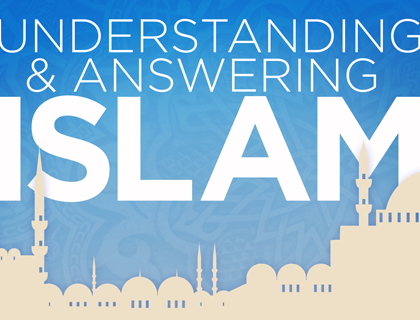Should we be ‘Ramadan Muslims’?

As-Salāmu’Alaykum
It is a month chosen by Allah as a month of fasting; an act of ibadah that Allah (Subhanahu wa ta’aala) made special to Him. This month is the most superior of months in which Allah (Subhanahu wa ta’aala) revealed the Qur’an. It is natural within this month for the Muslims to increase their good deeds in order to gain the vast reward of Ramadan and get closer to Allah (Subhanahu wa ta’aala).This is something that has occurred throughout history and is a positive sign that the flame of Islam still burns brightly in the hearts of Muslims worldwide.
All mature Muslims are obligated to fast within this month from dawn to sunset abstaining from food and drink. The hunger and thirst that is felt during the day is automatically connected in our minds to the reason as to why we are fasting, as a worship of Allah (Subhanahu wa ta’aala).
Haraam (prohibited) actions are also avoided by many during Ramadan, the talk of which also suddenly becomes taboo. It is sad to see Ramadan treated as people of other religions treat their religious occasions, in a manner that only temporarily alters their actions.
Why?
Many Muslims would openly declare their belief in Islam yet at the same time have adopted this corrupt notion that relegates Allah (Subhanahu wa ta’aala) and the Qur’an to one month in the year or only to personal worship. The effect is temporary and after Ramadan the actions and together with them the guilt returns.
The true meaning of Ramadan
Allah (Subhanahu wa ta’aala) says:
شَهْرُرَمَضَانَالَّذِيَأُنزِلَفِيهِالْقُرْآنُهُدًىلِّلنَّاسِ
وَبَيِّنَاتٍمِّنَالْهُدَىوَالْفُرْقَانِ
“Ramadan is the month in which the Qur’an was revealed, a guidance for mankind, and clear proofs of the guidance and as a criterion (al-Furqan)” [TMQ Al Baqarah: 185]
We should realize that the deen has come to regulate the dunya. Allah (Subhanahu wa ta’aala) revealed the Qur’an within this blessed month so that it acts as al-Furqan, the criterion between right and wrong for all of our actions throughout the twelve months of the year.
Allah (Subhanahu wa ta’aala) has revealed to us not only how to fast, He (Subhanahu wa ta’aala) has also given us details for how to trade in a halal way avoiding riba (interest) and all haraam contracts, how to live in the West without becoming integrated into the society and adopting its corrupt values, how to bring up and educate our children and guard them from the kufr culture that the society bombards them with, how the houses of Allah (Subhanahu wa ta’aala) – the mosques should be a centre for Islam that are open to the young and old rather than being places that turn people away. Allah (Subhanahu wa ta’aala) has revealed to us detailed rules for all issues just as He (Subhanahu wa ta’aala) revealed to us how to fast and perform the recommended acts during the month of Ramadan.
Ramadan should be a month for us to increase our remembrance of Allah (Subhanahu wa ta’aala) rather than a month of temporary obedience to His (Subhanahu wa ta’aala) orders. Allah (Subhanahu wa ta’aala) says,
“Oh you who believe! It is protection from the anger of Allah (Subhanahu wa ta’aala) and His (Subhanahu wa ta’aala) punishment. This is why taqwa is used to describe the performing of actions, which pleases Allah (Subhanahu wa ta’aala) and abstaining from all actions that displeases Him (Subhanahu wa ta’aala).
Taqwa in essence means God consciousness, being conscious of Allah (Subhanahu wa ta’aala) in all our actions and affairs. Fasting should aid us in gaining taqwa, as it puts us in an atmosphere of obedience to Allah (Subhanahu wa ta’aala), every time we feel hunger during the fast or fatigue, we know that we are doing it for the obedience of Allah (Subhanahu wa ta’aala). It makes us realise our relationship with Allah (Subhanahu wa ta’aala).
The [real] deen is being cautious and meticulous in the deen of Allah, and refraining from what Allah has forbidden, and acting according to what Allah permits and forbids.”
The son of ‘Ali (ra), Al-Hasan (ra) once said, “The people who have taqwa (al-muttaqoon) are the people who avoided whatever Allah (Subhanahu wa ta’aala) has prohibited and have done whatever Allah (Subhanahu wa ta’aala) has ordained.”
‘Umar ibn Abdul Aziz (ra) once said, “Taqwa is not by fasting the day and not by praying the night. And it is not by mixing between the two of them. But taqwa is leaving what Allah (Subhanahu wa ta’aala) has made haram and by doing what Allah (Subhanahu wa ta’aala) has made fard. After one has done this, Allah (Subhanahu wa ta’aala) will provide good things for that person.”
We must base our belief on conviction, clearly comprehending the fact that Allah (Subhanahu wa ta’aala) is the Creator of the universe and linking that realisation to our actions. The existence of Allah (Subhanahu wa ta’aala) and the definitiveness of the Qur’an are facts to us just as we believe that fire burns. To achieve this belief we must apply the mind that Allah (Subhanahu wa ta’aala) has given us rather than just imitating others blindly without any comprehension.
Allah (Subhanahu wa ta’aala) challenges all humanity to produce even one chapter like it which mankind has failed to achieve. For the challenge of the Qur’an has been set by Allah (Subhanahu wa ta’aala).
Possessing an unshakeable belief allows the Muslim to accept his position as the slave of Allah (Subhanahu wa ta’aala) and enables him to submit completely to all the commands and prohibitions, thus attaining taqwa.
It is linking the realisation of Allah’s existence to our actions that shapes the Islamic personality. On a Friday, morning the 17th of Ramadan the Prophet (salAllahu alaihi wasallam) led the Muslims outnumbered 3 to 1, 305 believers defeated an army of over 900 kuffar. The Quraysh were humiliated and the Muslims were victorious.
It is this belief and understanding that allowed the Muslims under the leadership of Tariq ibn Ziyad to liberate Spain during Ramadan, Ninety-two years after the Hijrah.
Benefiting from Ramadan
Allah (Subhanahu wa ta’aala) has allowed each and everyone of us to witness again the month of Ramadan that we may benefit from it by drawing closer to Allah (Subhanahu wa ta’aala), by making sincere repentance, and seeking His mercy and forgiveness. For those of us who are ‘Ramadan Muslims’ we must let this Ramadan be a time of true change where we completely mould our personalities according to Islam so that we will remain steadfast for the whole of our lives. For those of us who are already practising Islam let it be a time where we redouble our efforts, attain the reward and strengthen our relationship with Allah (Subhanahu wa ta’aala).
Indeed the one who fails to benefit from the month of Ramadan is one of the losers, and deserves to be distanced from Allah (Subhanahu wa ta’aala).
The Prophet (salAllahu alaihi wasallam) said, “Fasting is a shield with which a servant protects himself from the fire.” [Ahmad]
Abu Hurairah reported that the Prophet (salAllahu alaihi wasallam), climbed upon the minbar and said: “Ameen, ameen, ameen”. So it was said, “O Messenger of Allah (salAllahu alaihi wasallam), you climbed upon the minbar and said, “Ameen, ameen, ameen”? The Messenger of Allah (salAllahu alaihi wasallam) said,
“Ramadan has come to you. The Prophet (salAllahu alaihi wasallam) said:
“He who is amongst those who pray will be called from the gate of the prayer (in paradise) and he who is from the people of jihad will be called from the gate of jihad, and he who is from those’ who give in charity (i.e. zakat) will be called from the gate of charity, and he who is amongst those who observe fast will be called from the gate of fasting, the gate of raiyan.” Abu Bakr said, “He who is called from all those gates will need nothing,” He added, “Will anyone be called from all those gates, O Allah’s Apostle?” [Bukhari]
Abu Said al-Khudri reported that the Messenger of Allah, said: “No servant fasts on a day in the path of Allah except that Allah removes the hellfire seventy years further away from his face.” Abdullah ibn `Amr reported that the Messenger of Allah (salAllahu alaihi wasallam), said:
“The fast and the Qur’an are two intercessors for the servant of Allah on the Day of Resurrection. The Qur’an will say: ‘I prevented him from sleeping at night. [Ahmad]
[Ahmad, an-Nasa’i, and al-Hakim]
Let us ensure that we take heed from the words of our master, Muhammad (salAllahu alaihi wasallam) who said,
“Whosoever does not stop saying and acting upon falsehood, Allah’s (Subhanahu wa ta’aala) in no need for them to abandon their food.” This narration from our beloved Prophet (salAllahu alaihi wasallam) should serve as a stark warning to all those who stick to Islam during Ramadan and then abandon it after the day of Eid ul Fitr.
Recommended Actions
For the one who has taqwa sticking to the minimum of performing the obligations and refraining from the prohibitions does not seem enough as he continuously wants to develop his personality in order to gain the pleasure of Allah (Subhanahu wa ta’aala). The month of Ramadan is full of opportunities to gain the extra reward by undertaking the acts that please Allah (Subhanahu wa ta’aala).
The Messenger of Allah (salAllahu alaihi wasallam) addressed his companions on the last day of Sha`ban, saying, “Oh people! Whoever draws nearer (to Allah) by performing any of the (optional) good deeds in (this month) shall receive the same reward as performing an obligatory deed at any other time, and whoever discharges an obligatory deed in (this month) shall receive the reward of performing seventy obligations at any other time. Whoever gives food to a fasting person to break his fast shall have his sins forgiven, and he will be saved from the fire of hell, and he shall have the same reward as the fasting person, without his reward being diminished at all.” [Narrated by Ibn Khuzaimah]
There are particular actions that have been encouraged within this month like suhur, tarawih salah, performing umrah, qiyam and feeding the fasting people.
In the nights of this month there is much opportunity for repentance and supplication, both collectively in the tarawih prayers and also individually in the other prayers such as salat al-tahajjud and by remembering Allah (Subhanahu wa ta’aala) by performing dhikr, and by praising and glorifying Allah (Subhanahu wa ta’aala) with the heart and the tongue.
Abu Hurairah said, “I heard the Messenger of Allah (salAllahu alaihi wasallam) say,
‘the one who does qiyam (staying up the night in remembrance of Allah) in Ramadan with faith and sincerity, all his sins will be forgiven.'”
The Messenger of Allah (salAllahu alaihi wasallam) said to a woman from the Ansar, “If it is Ramadan, make umrah for indeed it is equivalent to Hajj” [Nisaa’i]
Praying with full devotion upon the night of al-qadr is of great reward, for it is a night that is better than a thousand months.
Allah (Subhanahu wa ta’aala) said,
“Verily! The night of Al-qadr is better than a thousand months” [TMQ: Al-Qadr: 1-3]
Maintaining Consistency
Remaining consistent post Ramadan is the true test. If one has truly based their belief on conviction and understood the significance and meaning of Ramadan, he or she will remain steadfast and committed to Islam.
Complied, Edited, and Adapted by Khalid Latif.
Recommended Posts

A Brief Illustrated Guide to Understanding Islam
February 27, 2017

Learn – How to Become a Muslim
February 27, 2017

Al Isra Wa Al Miraj
January 20, 2017


Comments are closed.